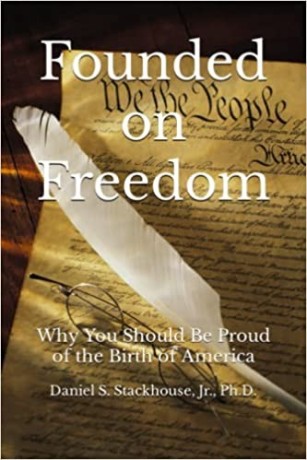Founded on Freedom: Why You Should Be Proud of the Birth of America
2 years ago Electronics Stirling 35 views
"Stackhouse systematically and logically lays out the case that America has, from its inception, been on a path to form a more perfect union... A brilliant piece of scholarship." - Amazon
From the author of Rebellion to Tyrants is Obedience to God: The Role of Christianity in the American Revolution -
In Founded on Freedom: Why You Should Be Proud of the Birth of America, Daniel S. Stackhouse, Jr. argues that the preambles to the Declaration of Independence and the United States Constitution form America's "mission statement" - an explanation for why the nation came into being and how it means to accomplish its purpose. As Stackhouse notes, mission statements are not necessarily a reflection of what is: they are often aspirational, seeking to address some need or attain a goal. Stackhouse argues that although most people throughout world history had not enjoyed the Declaration's proclaimed God-given natural rights to "life, liberty, and the pursuit of happiness," the deeply held belief in America's founding principles led the new United States of America, from its very beginning, to break off from the path which most of the rest of the globe had trodden throughout the ages and has continued to inspire and guide Americans ever since.
After first putting America's colonial experiences with Indians and slavery into their historical and global contexts, Stackhouse argues that virtually everyone of the founding generation understood America's founding principles to mean precisely what they said, despite the fact that they had not been perfectly fulfilled. Thereafter, great Americans like Abraham Lincoln, Frederick Douglass, Martin Luther King, Jr., and Ronald Reagan have repeatedly urged us to return to our founding ideals whenever threats to liberty and justice have appeared and required the nation to make a course correction and return to its true north. Stackhouse urges all Americans not to abandon our "mission statement" but to return once again to its unifying principles, now when we need them more than ever.






















